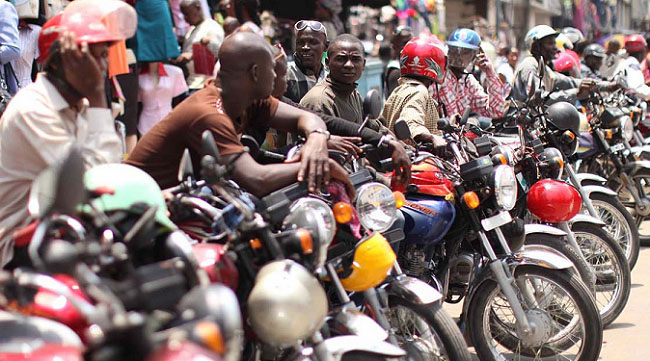The conversation about commercial motorcycle commuters otherwise called okada has died down. That sounds ominous considering the negative fallouts from the enterprise. The dangers presented by the business as it flourishes without regulation is a dangerous reality we ignore at the peril of society.
The subject has been on the front burners before but it did not receive enough condemnation to warrant a state stoppage.
Riders and pillion riders continue to suffer broken limbs and even deaths as the okada business continues to be a feature of our streets in the cities, especially the national capital. In Accra, it especially poses a more dangerous picture because of the many vehicles plying the streets and the glaring recklessness exhibited by the riders.
Motorists have disturbing stories about how the okada riders dent their cars and would not even stop to render apologies, let alone offer to mend the damage. They simply ride away and given the nature of the traffic logjams, the motorist victims are unable to give them a chase. It is even not advisable to take such a path.
Pedestrians are not spared the dangers posed by the riders who have no knowledge of road signs. They ignore traffic lights and although this is not a safe thing to do, pillion riders do not complain because, after all, they want to arrive at their destinations on time.
Pedestrians sometimes get knocked down by okada riders meandering their way through the long lines of vehicles held up by traffic jams as they try to cross to opposite of Accra streets.
A few months ago, some okada riders were reportedly given some traffic lessons by the MTTD cops. That prompted the question as to whether the okada business now has a legal backing. We recall when the late ACP/Mr. Awuni Angwutuboge descended upon the business because for him it was an illegal enterprise. His intervention suffered a setback as an NDC government official at the time said it was a disincentive to the electoral fortunes of their party.
Since then, we have witnessed any concerted efforts at curbing the illegality. Perhaps the authorities have given up on them and would rather look on unconcerned as more and more people buy the motorbikes for the okada business.
With the rising number of motorbikes joining the motorbike taxi service, Accra would soon have more of them than cars and lorries. The effects of such a feature are certainly not in the interest of the health of the city.
If we have accepted okada is part of the feature of Accra and the country at large, then there should be some regulation as opposed the current ‘free-for-all’ reality. The absence of regulation is a presage chaos.


